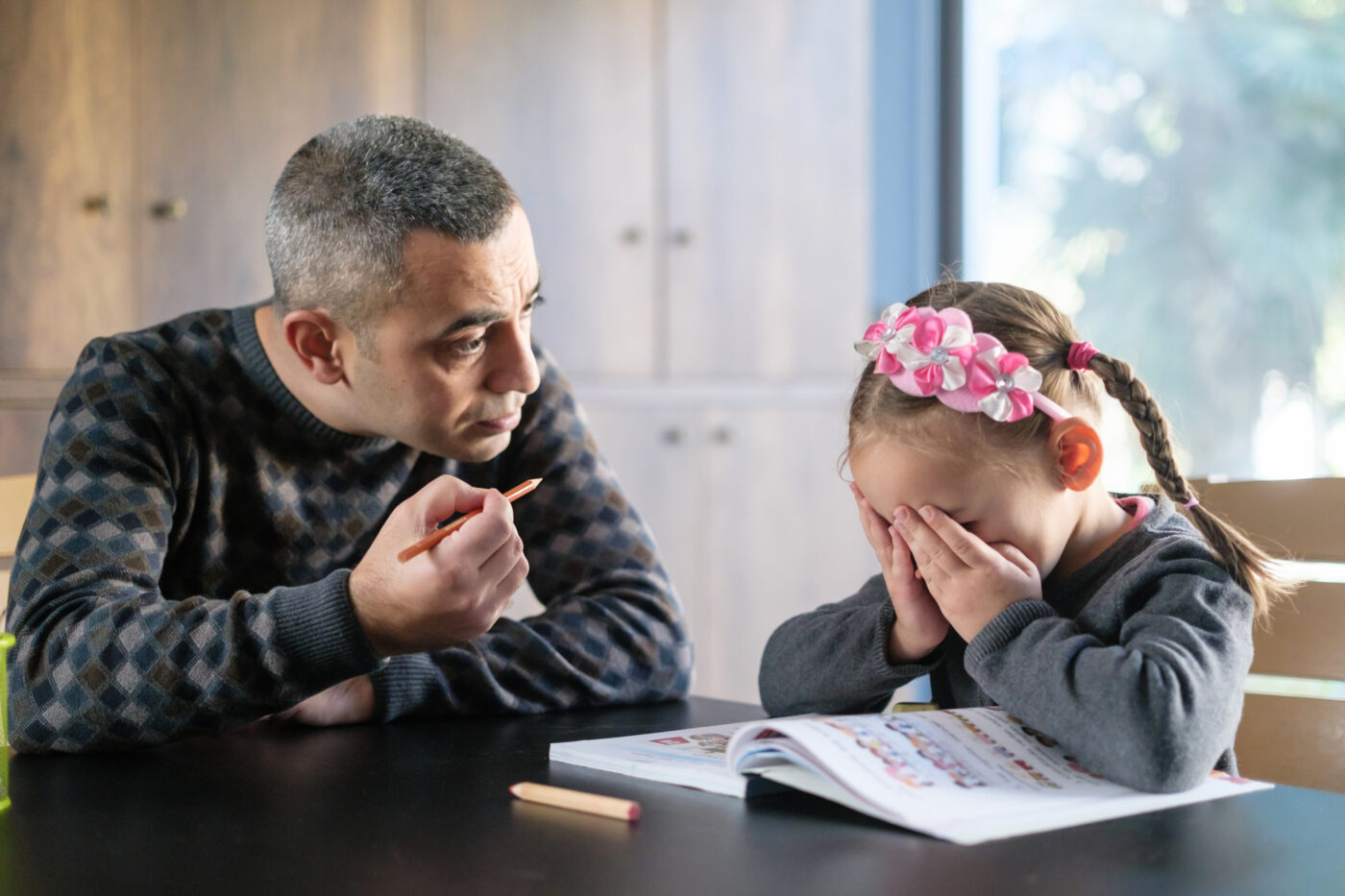My 3-year-old son came out to the garage one morning to play with his monster trucks while I was working out. He likes to be near me as often as possible, and having someone to distract me while I’m doing abs always helps shift my focus away from how much I hate sit-ups. While in the middle of doing some heavy deadlifts, he noticed me struggling, and walked over to “help” lift one side. In my urgency to get him out of the way, I shouted “MOVE!”
His eyes welled with tears as he timidly went back to playing with his monster trucks. As I set down the weight and sat down next to him, I apologized for yelling and expressed the safety concerns I had for both of us at that moment. My urgency to get him out of harm’s way caused me to shout. Although an understandable time to raise my voice, it caused me to reevaluate how to communicate with kids. Here are 3 things to remember when you’re talking with your kids.
1. Slow things down.
When past conversations used to turn into arguments, I would become so consumed with proving my point and “winning” the argument that there was often a huge disconnect between my response and what the other person was actually trying to communicate. As I’ve matured, I’ve learned to hold on to the advice found in James 1:19, which says, “Everyone should be quick to listen, slow to speak, and slow to anger.” Using this as a rule of thumb in communication, I’ve been able slow down, process the information, and respond in a way I’ll be proud of later. It helps me to stay consistent and not let my emotions get the best of me.
2. Seek to understand.
Imagine driving down the road and someone cuts you off to the point that you need to slam on your breaks or swerve not to hit his or her vehicle. Frustrating, right? Now, imagine you know a woman in that car is in labor and is on the way to the hospital to give birth. Your anger changes quickly simply because you have understanding for her actions. Now shift that same thought process to a conversation when someone was rude or interrupted you.
It’s so important to gain an understanding. Proverbs even says, “… and with all thy getting, get understanding.” (Proverbs 4:7b) If we can better understand what our kids are facing, it will help us to understand why they’re responding negatively. That doesn’t mean we condone bad behavior, rather, it helps us to get a better perspective to navigate the problem together.
3. More is caught than taught.
Life with kids can be a neverending teaching opportunity. Sometimes it’s sitting them down to give guidance or instruction but, in most circumstances, communication is more caught than taught. That means each engagement with your kid is a learning opportunity, even if it doesn’t feel like a teaching moment. How you choose to communicate will directly impact how your kids learn to communicate with their siblings, peers, teachers, and anyone else they encounter.
Sound off: What are some other pieces of communication advice you’d give to a dad?











Huddle up with your kids as ask, “What do you think is easiest and hardest about communication?”